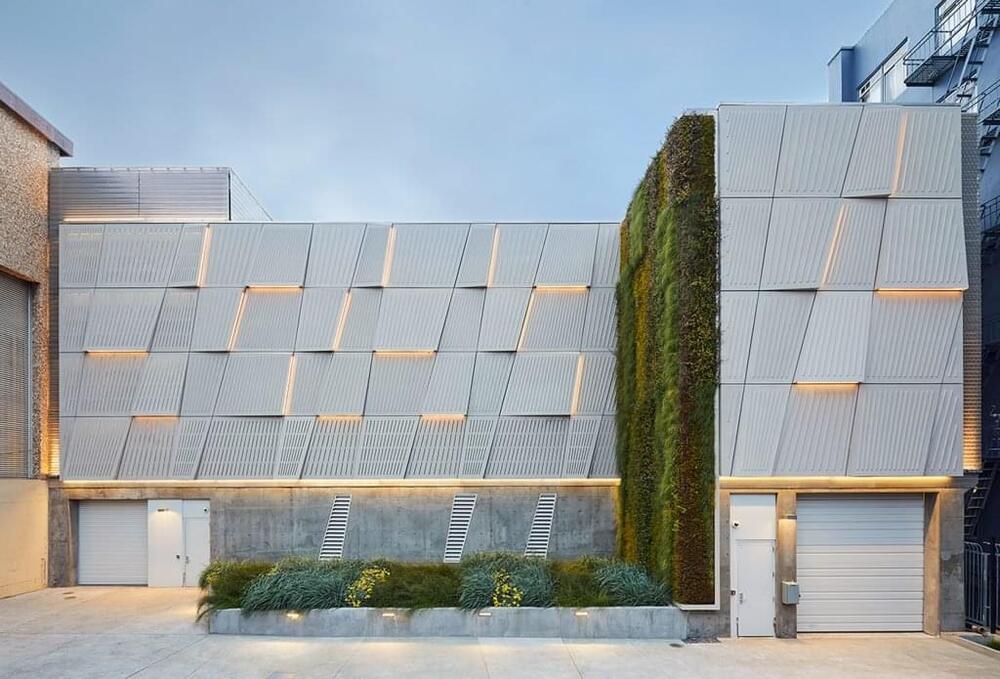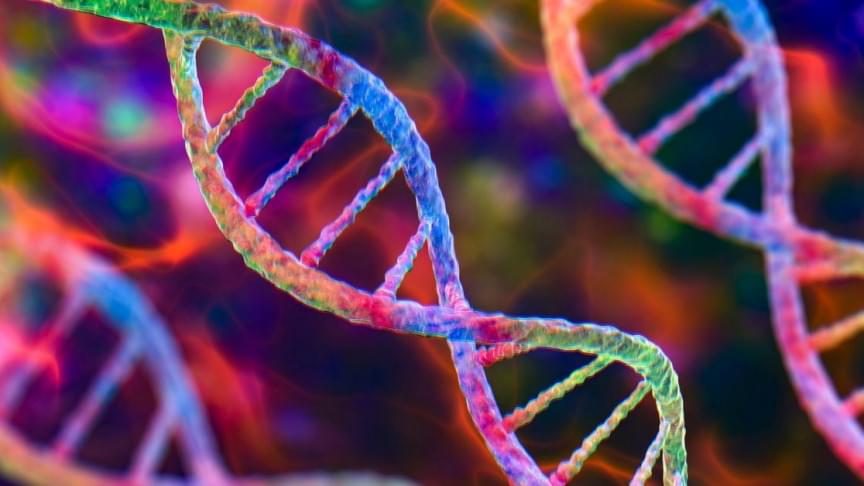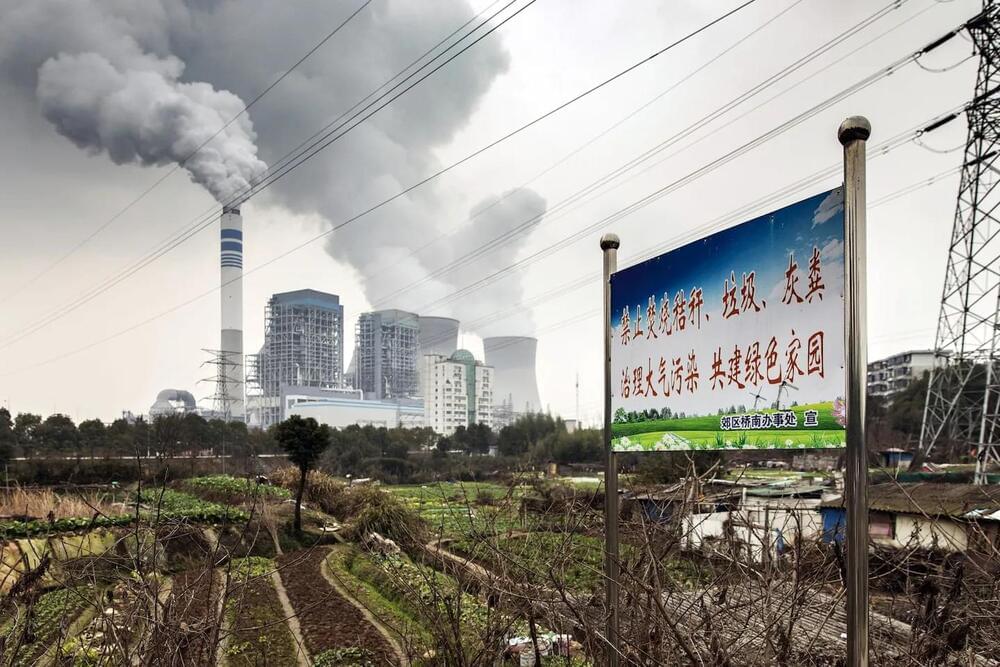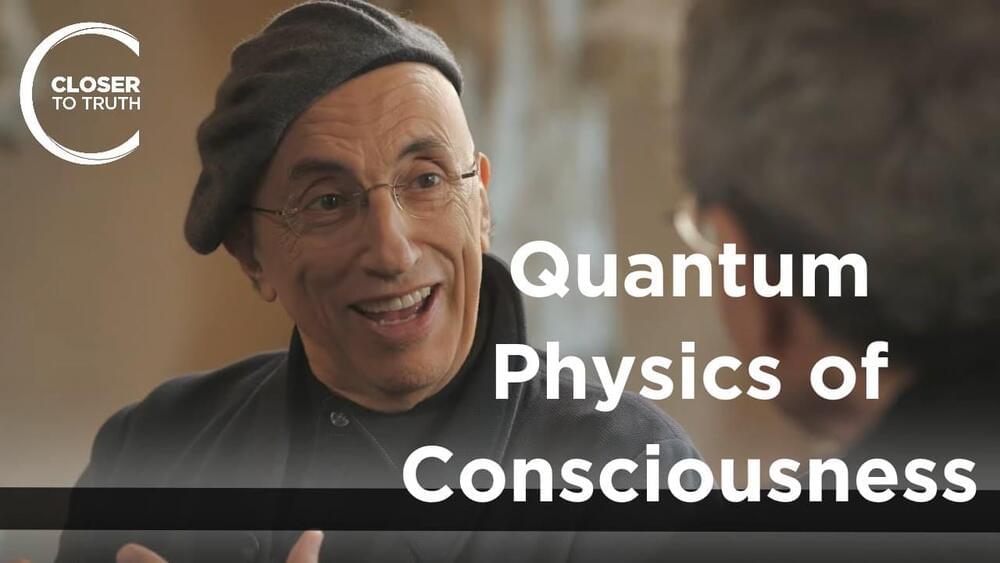A lush green wall and back-lit fibreglass panels are found on the exterior of an electrical substation extension that was designed by TEF Design to achieve net-zero energy consumption.
Owned by the utility company Pacific Gas and Electric, the Larkin Street Substation Expansion is located on a mid-block site in the city’s Tenderloin neighbourhood. It adjoins a concrete structure built in 1962 to supply power to the northeastern part of San Francisco.
For the constrained site, local firm TEF Design conceived a two-storey addition that totals 12,200 square feet (1,133 square metres). The extension rises 50 feet (15 metres) at its highest point.









